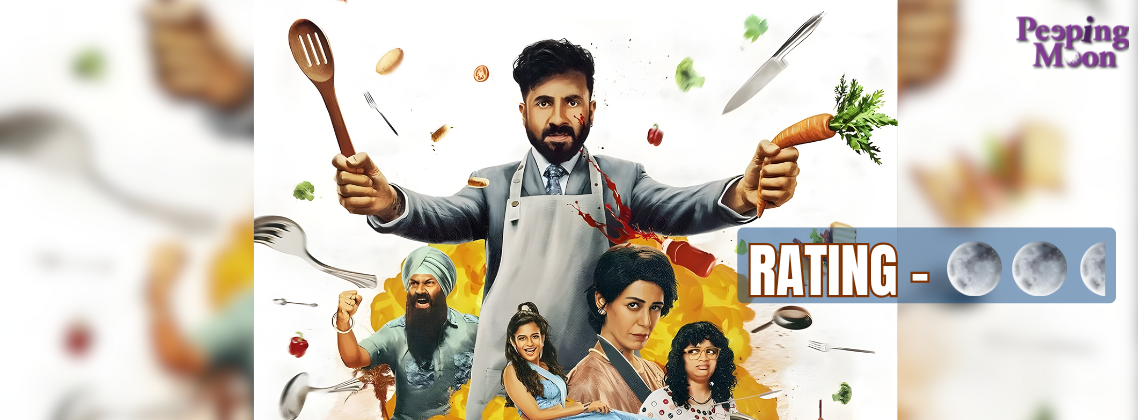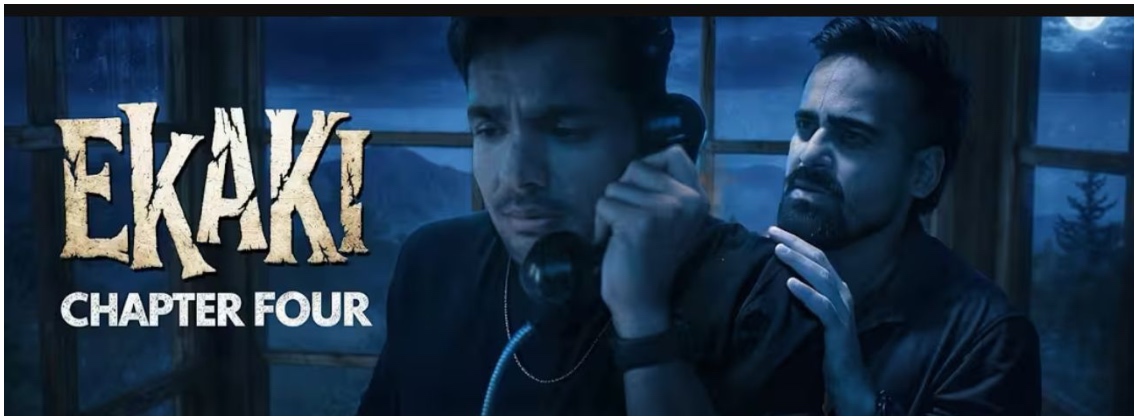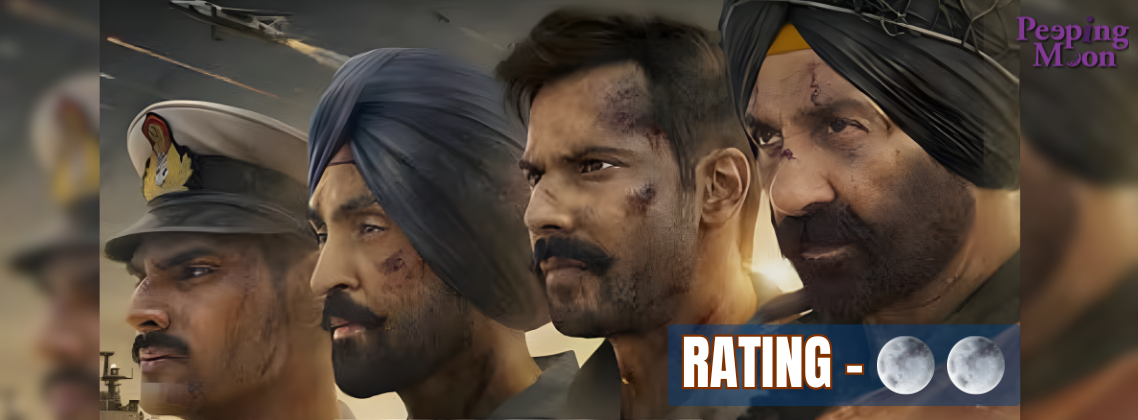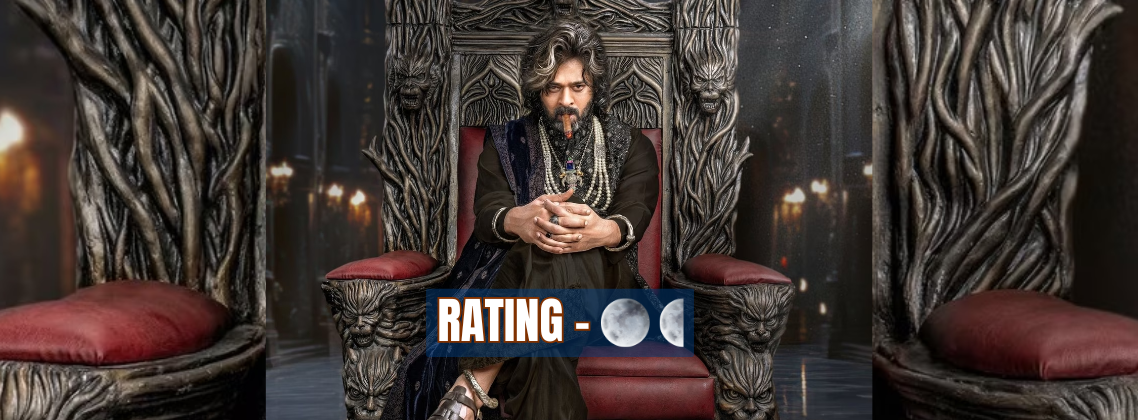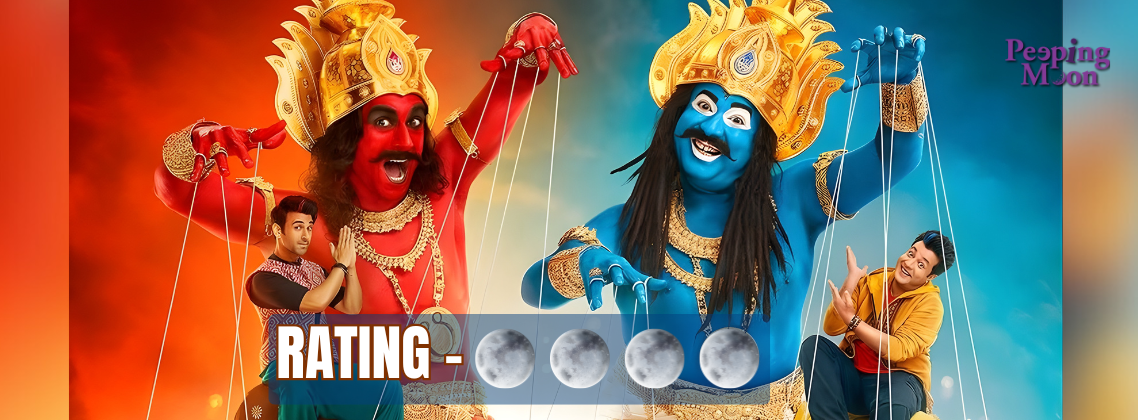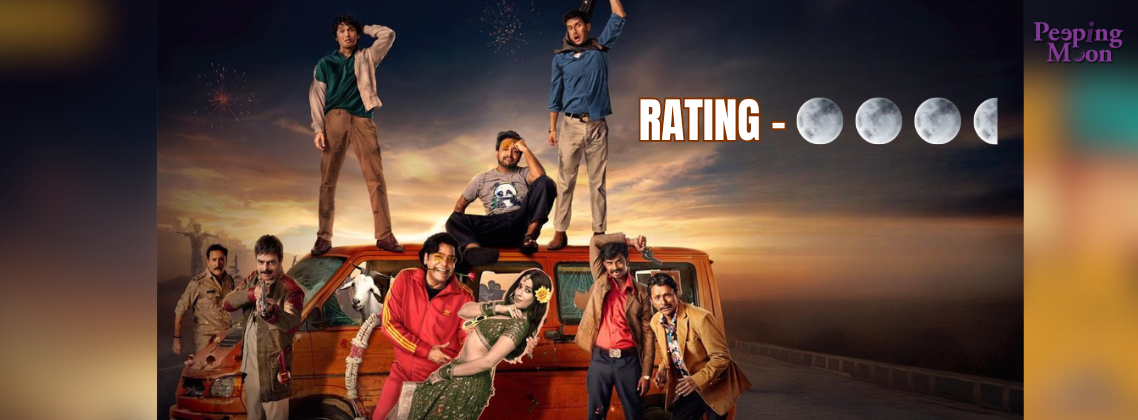Film: Qala
Cast: Triptii Dimri, Swastika Mukherjee, Babil Khan, Amit Sial, Girija Oak, Samir Kochhar, Varun Grover
Director: Anvita Dutt
OTT: Netflix
Rating: 3.5 Moons
.jpg)
The magic of Indian music is unmatched. When you weave emotions like insecurity, possessiveness, ambition and longing into soothing poetry, the result is definitely more ‘Qala’tmak than the rest. Lyricist-turned-filmmaker Anvita Dutt paints a detailed portrait of desirous love with roots deeper than what the naked eye can witness. Teaming up with Triptii Dimri after the mega success of Bulbbul, the director brings back retro world aesthetics by telling the story of a mother-daughter set in the early 40s.
Qala is nothing but poetry in motion taking us through the journey of Qala Manjushree (Triptii Dimri) and her mother Urmila Manjushree (Swastika Mukherjee). Qala belongs to the family of renowned classical singers and has to take forward the legacy of Pandits in the household despite being a woman or bai. Disinterested in music, she is forced to follow the footsteps of her ancestors. On the other hand, Qala has to deal with her mother's hostility.
.jpg)
Urmila's bitterness towards Qala comes from the fact that she doesn't have a son to take the family's legacy ahead. She gets more critical of her daughter when Jagan (Babil Khan) enters their lives and wins her heart with his singing prowess. He is an orphan. Diverting her attention towards Jagan, Urmila opens the door to her house as well as her heart. Qala despises Jagan for clear reasons.
The film's primary conflict appears to be Qala's battle against Jagan to win her mother's love. But, there's a lot more to it. Director Anvita, through Qala, is telling stories of many young women and the emotions they go through on a daily basis. Painting a stunning canvas with shades of love, longing, dissatisfaction, underconfidence, hate, jealousy and patriarchy, she manages to move the viewers with every event that unfolds on the screen.
.jpg)
Qala's tone is set from the first frame wherein the young and popular singer is flaunting her golden vinyl. Surrounded by the media and her fans, it is indicated that Qala is cherishing the golden period of her life, just trying to prove her worth to her mother. As the sun rays hit the vinyl, a golden halo is created, covering her face amid much paparazzi attention. When the period of downfall begins, symbolism, colour play and atmospheric changes are introduced.
Qala is undoubtedly one of this year's most aesthetic and gorgeous films. Anvita does it without compromising on the depth of storytelling and the character arc of her titular lead, played by Triptii. She doesn't shy away from holding a mirror to the evil side of Indian cinema in the 40s, 50s, and 60s. Without watering down the impact of sexual scenes, Anvita has dealt with some bold and spine-chilling moments with grace, beauty and sensitivity. There's drama in the dark and the film celebrates that unapologetically.
.jpg)
Apart from being an aesthetic and poetic watch, Qala stands out from its contemporaries just for the fact that even when the music soars, the narrative and storytelling don't dwindle. Each and every song tells a story of its own and are delivered by pitch-perfect actors. Qala isn't just a treat to the eyes but to the ears too. It is a film that the entire Indian film industry should be proud of. Having said so, Qala has its set of flaws.
The character of Jagan, played by Babil Khan, is underwhelming. Despite being a catalyst, the impact that the character should have created misses the mark. Though Jagan is present almost throughout the film, Anvita could have explored more of his equation with Urmila and Qala. The conflict between Qala and Jagan should have got more attention but nonetheless, Triptii and Babil sharing the screen space is enough to stay glued to the screen.

Qala, unlike your other weekend watches, is a dark, complex and multilayered film. With every frame narrating a story, you simply cannot leave your seat. Don't think of pausing and allowing domestic distractions to take precedence. Qala needs dedicated viewing with concentration to allow it to make a space in your living rooms and hearts of course. The well-choreographed dramatic sequences, especially in the one where Qala's personality transformation is highlighted using shades of black and dizzying camera works, command your attention and admiration.
Qala is Triptii and Triptii is Qala. The actress who is growing by leaps and bounds delivers a nuanced yet delicate performance as the titular character. The character's mental instability to craving for her mother's undivided love are beautifully portrayed by her. Appreciating her for just a few scenes would be an injustice to what she brings to the table this time. Getting into the skin of Qala, she communicates through her body language and sheer innocence.
.jpg)
Swastika Mukherjee will make you hate Urmila, the mother who disapproves of her own daughter's skills and talent. She is mean, menacing and drop-dead gorgeous. Whenever she appears on screen, it is a delight. Making his acting debut with Qala is Babil Khan. Owning Jagan, the young actor leaves behind a lasting impression. That too when the character could have had more scope to shine in the story. Even when his dialogues are minimum, Babil expresses and talks through his body language and deep eyes.
Amit Sial, dressed in dapper suits, is phenomenal as always. Girija Oak, Samir Kochhar and Varun Grover are good too in their supporting roles. Abhishek Banerjee features in a cameo and is lovable.
.jpg)
The ink with which Qala is written is the cinematography. Magician of the lens, Siddharth Diwan, reunites with Anvita and Triptii after Bulbbul to capture the musical world of Qala in his cameras. Be it the breathtaking top shots, powerful wide-angle sequences, beauty of the snow-capped lands and chaotic life of showbiz, all of this has been reflected magnificently in the film.
Since Qala is about a singer, music has to be the most effective tool. Amit Trivedi doesn't disappoint. Recreating the golden era of Indian music which is comforting and pleasing, he treats fans to tracks like Shauq, Ghodey Pe Sawar, Phero Na Najariya, Nirbhau Nirvair, Udh Jaayega and Rubaaiyaan. The lyrics of the songs are written by Varun Grover, Swanand Kirkire, and Kausar Munir. Sireesha Bhagavatula and Shahid Mallya are the key singers of Qala.
.jpg)
Qala is a symphony of perfection. A blend of multiple musical notes, it never fails to enthrall you with a unique and breathtaking way of narrating a relatable yet complex story.
PeepingMoon gives Qala 3.5 Moons



.jpg)
.jpg)

